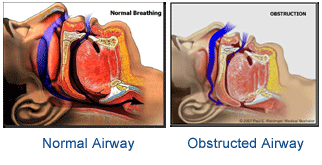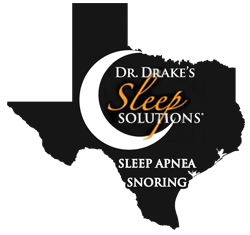13 Feb What is Sleep Apnea?
When you start to fall asleep, your entire body begins to relax. If you suffer from sleep apnea, your upper airways will begin to collapse and result in complete (apnea) or partial (hypopnea) airway closure. When this happens, your brain will awake from deep sleep due to the feeling of suffocation and begins to inject adrenaline into the bloodstream to increase the muscle tone and reopen the airway. After a few breaths, your body will relax, causing the airway to close down yet again, and the process becomes a vicious cycle throughout the night. Do I Have Sleep Apnea?

Obstructive Sleep Apnea
Obstructive sleep apnea results in low oxygen levels and fragmented sleep. Due to the lower O2 levels and disrupted sleeping patterns, there are many negative effects on the body.
SLEEP APNEA SYMPTOMS
Sleep apnea takes toll on your body and your health, causing the following symptoms:
- Excessive Daytime Sleepiness
- Increased risk of cardiovascular problems (heart attack, hypertension, congestive heart failure)
- Increased risk of stroke
- Increased risk of motor vehicle accidents
- Weight gain from increased insulin resistance and glucose intolerance
Sleep apnea is a progressive disease, meaning once you’re diagnosed, the problem will only become more severe over time. It’s important that you seek treatment today to regain control over your sleeping patterns and your well-being.


